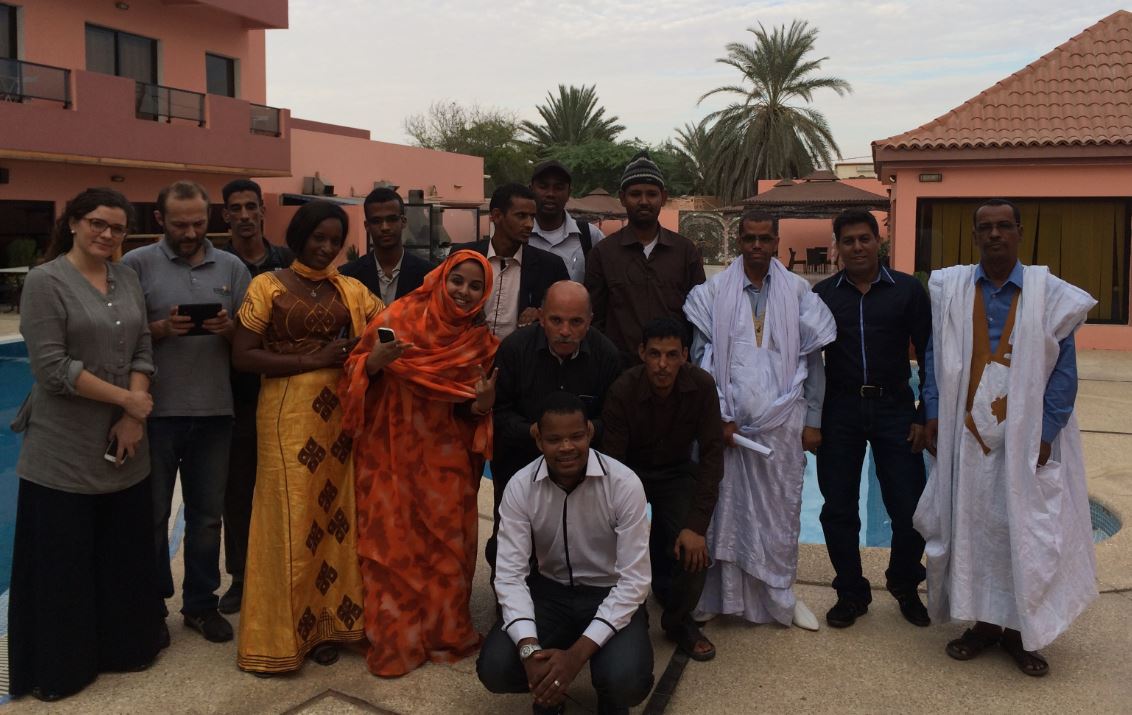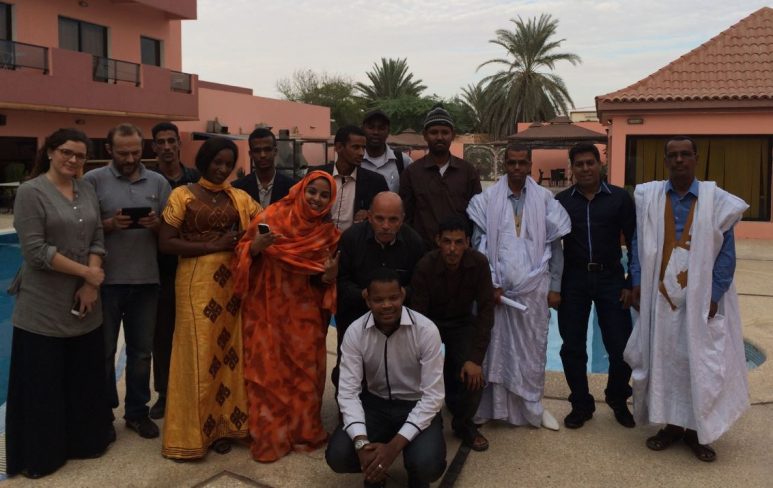Dates: 5 – 11 December 2014
Country: Mauritania

 School teacher, fishing captain, blogger, star TV anchor… People with very different professions and from different parts of Mauritania gathered in the capital Nouakchott where the Media Diversity Institute (MDI) organised a multimedia reporting workshop on 5 – 11 December. Although diverse in their professions, age, regional and cultural characteristics, the participants had a common goal – to improve reporting on their communities in Mauritania.
School teacher, fishing captain, blogger, star TV anchor… People with very different professions and from different parts of Mauritania gathered in the capital Nouakchott where the Media Diversity Institute (MDI) organised a multimedia reporting workshop on 5 – 11 December. Although diverse in their professions, age, regional and cultural characteristics, the participants had a common goal – to improve reporting on their communities in Mauritania.
‘I want to change the way they look at us,’ said Mohammed Ag. ‘At least, if they could understand we need to be heard,’ said Haroune. ‘They’ are the central authorities, most of the times opposed to the local communities. In order to give a voice to the voiceless in the Sahara, MDI specifically designed a multimedia course reaching out to both unskilled citizen reporters and experienced journalists.
Some of the participants, like Tuaregs Housseyn and Mohamed, travelled thousands of kilometres to get to the capital. They want to expose the plight of the refugees fleeing unrest in Mali. Traditional fisherman Haroun attended the workshop because he wanted to make sure that his way of living is nor lost nor ignored in complex financial and technical negotiations between the Mauritanian government and the European Union or China. Another participant, Nabila, is eager to report on women’s issues, while Weddy wants to further improve content for his local news agency based in the south of the country, near the Senegal River.
The workshop consisted mostly of practical sessions, such as shooting videos, taking pictures, audio editing, writing, and rewriting the stories. The team of trainers was led by Laurent Prieur, a French Agency reporter, photographer and video journalist.
Each of the twelve participants has chosen and pitched the story to be published, in future, on the MDI online platform for Sahara, dubbed www.dunevoices.info. Some of the topics suggested by the participants were related to the mysterious fever in Tjiaret, causing a panic because of the Ebola crisis in neighbouring Mali. Some participants proposed stories on sub-Saharan immigrants subjected to discrimination and abuse by their employers. Most of the stories had a strong local angle that required journalists operating on the spot. This is why recruitment paid specific attention to geographic distribution, making sure trainees came from all over Mauritania, a country four times bigger than the UK.
The training session in Mauritania opened the implementation phase of MDI project “Inclusive Voices for Conflict Prevention and Democracy Building in North Africa: bringing the voices of the Sahara into the public sphere”. The challenge of the MDI programme led by Dominique Thierry is to gather and train multinational, multi-ethnic and multilingual national teams in Mauritania, Mali, Algeria, Morocco and Libya and give a voice to the populations of the Sahara.
Mauritania is the first of five countries where up to 60 journalists and citizen reporters will be trained on multimedia reporting and inclusion of diverse voices in society.
